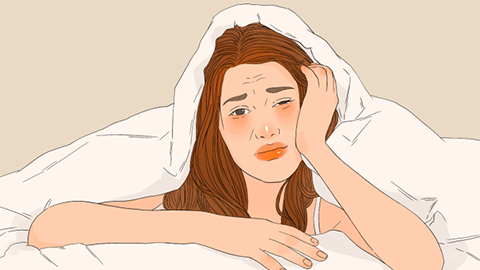What medications are available for treating insomnia?
Generally, insomnia is caused by mental stress, environmental disturbances, or disruptions in circadian rhythms. Common symptoms include difficulty falling asleep, light sleep, and frequent awakenings. Patients may take medications such as zopiclone tablets, estazolam tablets, zaleplon tablets, mirtazapine tablets, and melatonin granules under medical guidance. Detailed explanations are as follows:
1. Zopiclone Tablets
Zopiclone belongs to the non-benzodiazepine class of hypnotic drugs. It acts on specific receptors in the central nervous system to regulate sleep rhythms, shorten sleep onset latency, prolong total sleep duration, and improve sleep quality. It is suitable for various types of insomnia, especially patients who have difficulty falling asleep and maintaining sleep.

2. Estazolam Tablets
Estazolam is a benzodiazepine drug that enhances the effects of inhibitory neurotransmitters in the central nervous system, reducing neuronal excitability to produce sedative and hypnotic effects. It can also alleviate anxiety associated with insomnia. It is suitable for short-term treatment of patients with difficulty falling asleep or light sleep. Long-term use should be conducted strictly under medical supervision.
3. Zaleplon Tablets
Zaleplon is a short-acting hypnotic agent with a mechanism of action similar to zopiclone. It has a rapid onset and short duration of action, helping users fall asleep quickly with minimal impact on daytime alertness the following day. It is ideal for patients with isolated difficulty initiating sleep, particularly those experiencing occasional or transient insomnia.
4. Mirtazapine Tablets
As an antidepressant, mirtazapine improves insomnia caused by depressive mood by regulating levels of serotonin and norepinephrine in the central nervous system. It also helps relieve anxiety and prolongs deep sleep duration. It is suitable for insomnia patients with comorbid depression or anxiety symptoms.
5. Melatonin Granules
These granules contain melatonin, a hormone naturally secreted by the human body. They help supplement endogenous melatonin levels, regulate circadian rhythms, correct sleep-wake cycle disturbances, and improve difficulty in falling asleep. They are appropriate for mild, temporary, or rhythm-disorder-related insomnia.
In daily life, it's important to develop healthy habits: avoid consuming coffee or strong tea before bedtime; stay away from electronic devices at least one hour before sleeping; keep the bedroom quiet, dark, and at a comfortable temperature to create an optimal sleep environment; maintain regular sleep schedules by going to bed and waking up at consistent times to stabilize physiological rhythms.






